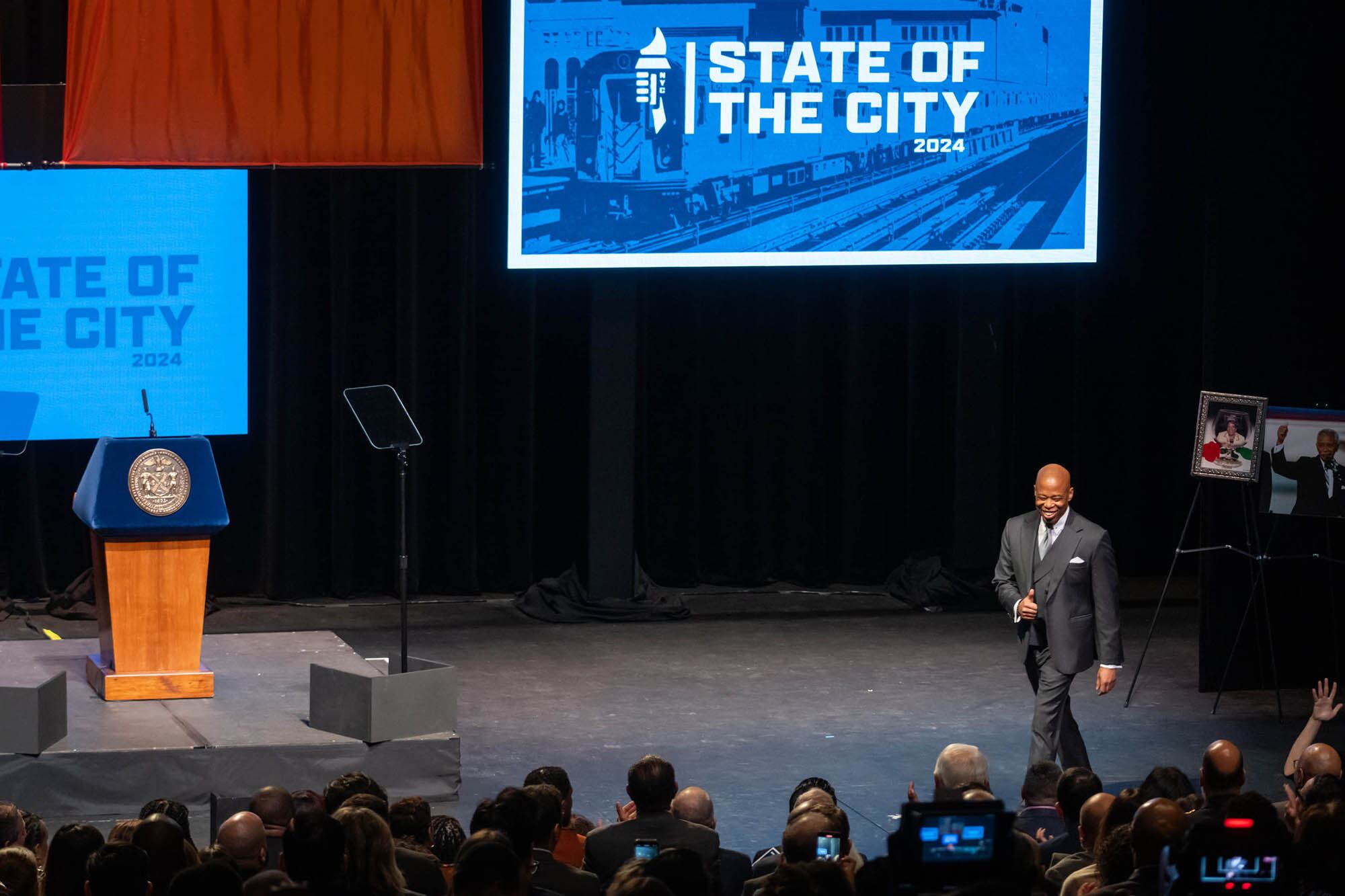Sign up for Chalkbeat New York’s free daily newsletter to keep up with NYC’s public schools.
Mayor Eric Adams declared social media a public health threat to students during his annual State of the City speech on Wednesday. He promised to take on the issue though he offered few details about how the city plans to respond.
“We’re treating social media like other public health hazards,” Adams said, mentioning TikTok, YouTube, and Facebook. “We must ensure that tech companies take responsibility for their products.”
National public health authorities have also expressed worry about potential risks associated with social platforms. The U.S. surgeon general said last year that social media may have some benefits, but warned it “can also have a profound risk of harm to the mental health and well-being of children and adolescents.”
Despite the growing concerns and hand wringing, however, there is little conclusive evidence directly linking social media use to mental health problems. Experts have called for more research on the topic.
City health officials pointed to worrying signs of deteriorating mental health among adolescents, noting that survey data show rising feelings of hopelessness or suicidal ideation among city high school students. To help address those trends, the city launched a teletherapy program in November available to city residents ages 13-17. About 1,500 teens have signed up to use it so far, Adams said. State officials have also signaled interest in addressing student mental health and social media use.
Unlike last year, the mayor’s speech did not focus heavily on education. He briefly mentioned a small number of existing efforts, including expanded summer programming and an overhaul of literacy instruction. And while he said he plans to release more details about how the city plans to treat social media companies as a health threat, the policy implications of that were not immediately clear. Instead, the city’s Health Department issued an advisory on Wednesday with a series of recommendations.
The advisory encourages caregivers to delay giving children a smartphone until age 14 to limit constant access to social platforms. It also suggests that educators or others who work with children discuss “social media use in an open-minded way” and provide “support when they identify concerns.” It points to the Education Department’s digital citizenship materials and tools to develop a “family media plan.”
Social media companies are fueling a mental health crisis, especially for our young people. But we won't let Big Tech endanger our kids.@NYCHealthCommr Vasan is today issuing an advisory officially designating social media as an environmental toxin in New York City. #SOTC2024 pic.twitter.com/8Rddkzr1hM
— Mayor Eric Adams (@NYCMayor) January 24, 2024
Some observers were glad to see the mayor highlighting the issue, as some city schools have struggled to manage the impact of social media on campus. In response to anonymous Instagram accounts that featured anonymous posts about other students and school officials, a Queens principal resorted to canceling activities and threatening to suspend students who followed the accounts. (The accounts were eventually removed, and the principal reinstated school events.)
“There just isn’t enough responsiveness to kid and adult complaints,” said Devorah Heitner, an author who has written extensively about children’s relationship with technology. She said the city could help pressure tech companies to more swiftly respond to problems like bullying and revenge porn.
Still, Heitner said it’s likely counterproductive to eschew the platforms entirely, as students may find community there and will likely need to participate in similar digital platforms in adulthood.
“What we don’t want to do is start a moral panic and try to control kids,” she said.
Alex Zimmerman is a reporter for Chalkbeat New York, covering NYC public schools. Contact Alex at azimmerman@chalkbeat.org.






